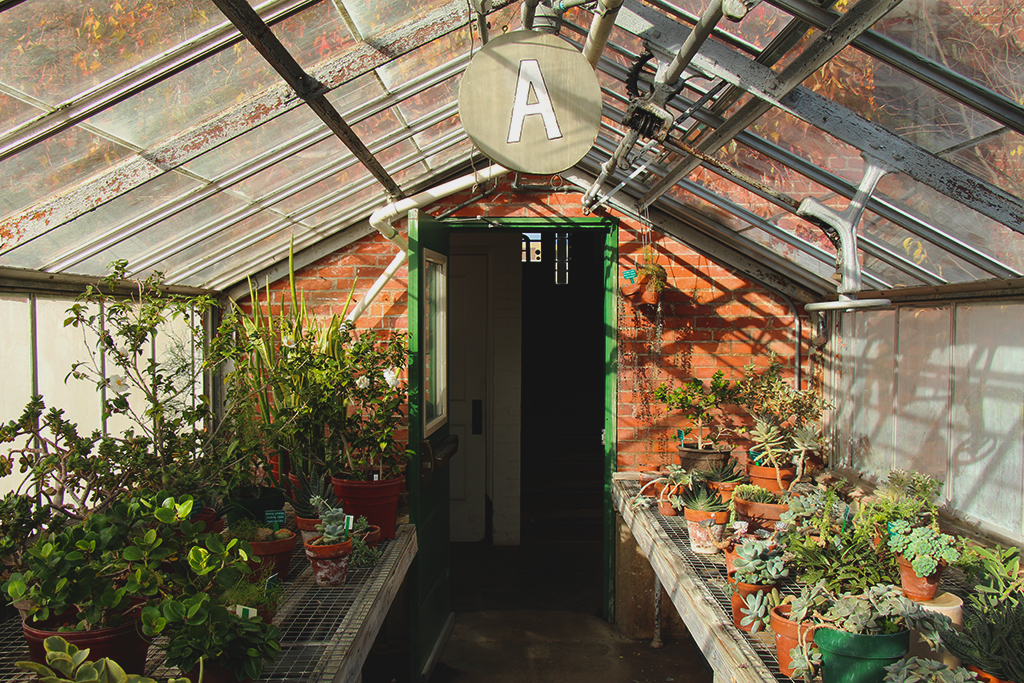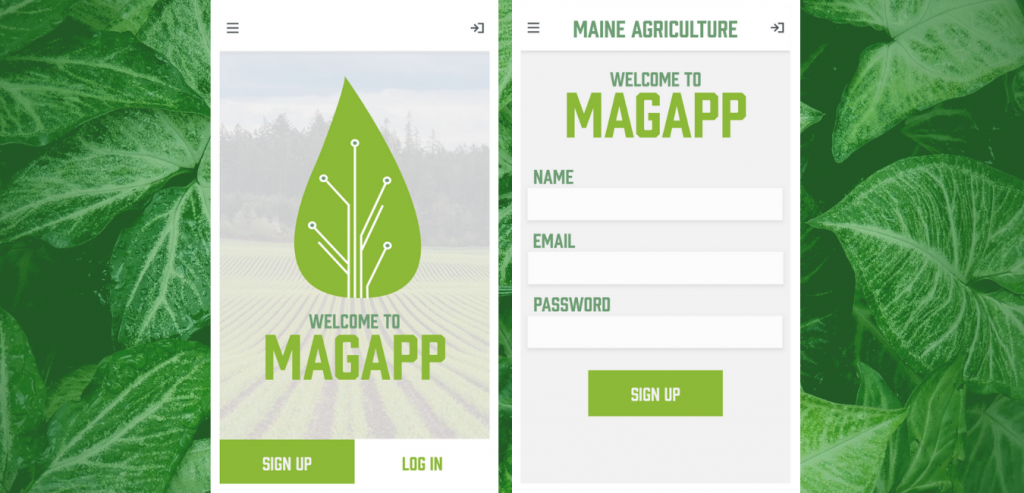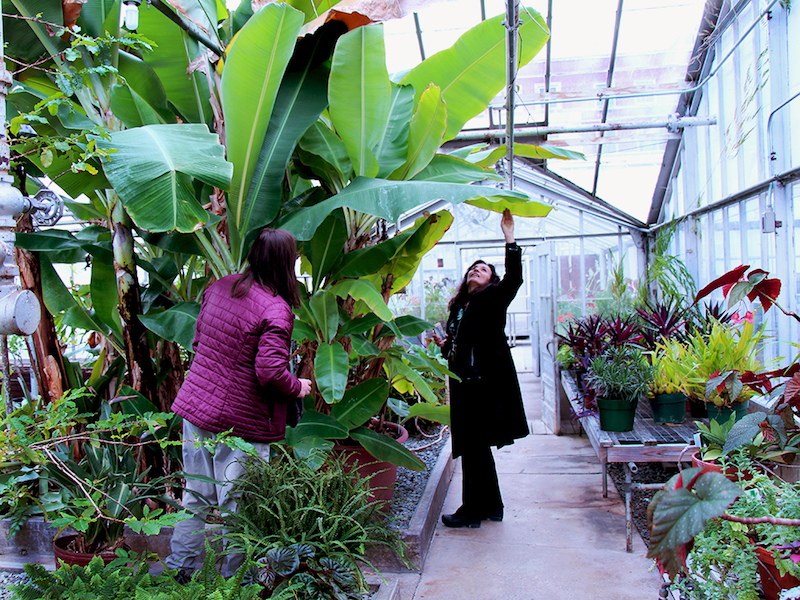
Developing an app to revolutionize greenhouse farming in Maine
A monitoring app for greenhouse agriculture in Maine.
New media undergraduates at UMaine are developing an innovative monitoring app, MAGAPP, to serve local Maine greenhouses for the Sustainable Year Round Agriculture Cluster Initiative by the Maine Sustainable Agriculture Society. Joline Blais, associate professor of new media, and Bill Giordano, SYRA data coordinator, are overseeing research that could help increase efficiency and reduce waste, keep college graduates in the state and create new industry in Maine.
“Keeping food production active through colder months is an expensive proposition but new combined renewable heating and energy options, along with improved insulation and Iot solutions are helping make the whole system for growers that is more efficient and cost effective to operate,” says Blais.
Stephanie Burnett, associate professor of horticulture, is helping students understand the sensors in the Roger Clapp Greenhouse on campus for better understanding of the technology they are building the app for. SYRA also has set up sensors in four greenhouses off campus to collect data while they develop and test MAGAPP.
Once completed it will be able to test temperature, humidity, soil saturation and many more conditions that are important to maintaining a greenhouse. Farmers will be able to control these factors from the app in real time, reducing waste and cutting costs. MAGAPP is expected to be functioning by the end of spring.
“My experience in interdisciplinary arts at UMaine combined with my work as a small vegetable farmer in Knox and Hancock Counties left me hungry to get UMaine’s different departments collaborating on food-related engineering projects that address the most urgent issues for Maine,” Giordano explains.
Blais and her team were one of nine projects awarded an Interdisciplinary Undergraduate Research Collaborative (IURC) grant in 2018. The team of undergraduates are working across multiple platforms from computer science to graphic design.
“We’re all very much interested in this kind of interdisciplinary work and having not only faculty involved but seeing students break out of academic silos. We don’t want them to think about the world as only one subject or only one major or only one discipline,” Blais said. “We think that interdisciplinary models are the way of problem solving for the future and is great to see new media so interconnected with UMaine’s original land grant mission.”

Student led interdisciplinary research with positive implications for the future.
Eliza Bennett, Jack Lampinen and Tate Yoder, all new media students, are developing this app with the assistance of Darius Haskell, a UMaine Presque Isle (UMPI) undergraduate of math, and Larry Feinstein, UMPI assistant professor of biology, who are organizing the data for the app once completed. They schedule weekly meetings and designate the responsibilities amongst each other.
Bennett is a third-year student from Windham, Maine. She designs the user experience for MAGAPP and develops how the app is organized for the consumer. Bennett has learned much from her peers and enjoys working with people that can help her strengthen her weaknesses.
“For me, what is most beneficial is being able to work with people with such different strengths. People have different things they’re good at on our team, so I’m able to see that and work with that and learn new things along the way,” Bennett said.
Yoder is a third-year student from Penobscot, Maine who loves his home state. He hopes to stay and help create new industry in the state. He is reenergized when he reminds himself of the broader effect this technology has for Maine.
“There’s a lot of opportunity to create something unique in Maine. I think being a part of a startup is really interesting – particularly when we get to work and meet with the very people who will be using these technologies,” Yoder said.
Lampinen is a third-year student from York, Maine. He is developing the app through coding and setting up how the data will be stored. He’s inspired by the future implications this research might have on Maine’s agriculture industry.
“This could change the country or the world. The potential is completely immeasurable right now and that’s what’s so exciting about it. It’s such a new concept,” Lampinen said.

Commitment to reducing waste and growing Maine’s future economy.
Blais and her team hope to use MAGAPP to develop a new industry in Maine and keep college graduates in the state. They hope this inspires people to start their own small businesses once the app is development.
They are using similar models from other greenhouse industries to reduce waste and consumption for Maine farmers. This technology will allow farmers to control heat, light and other costly aspects of running a greenhouse, so they can cut business costs. Blais thinks the development of this app will contribute to a sustainable future for Maine farmers and the tech youth who support them.
“It would really be great if we have little clusters of small businesses with students that come out of new media programs that know how to program sensors, build these apps and repair them while helping farmers. We don’t want farmers beholden to large corporations. We’d like them to be supporting small companies locally,” Blais said.
Author: Kendra Caruso
Media Contact: Christel Peters, 207.581.3571
